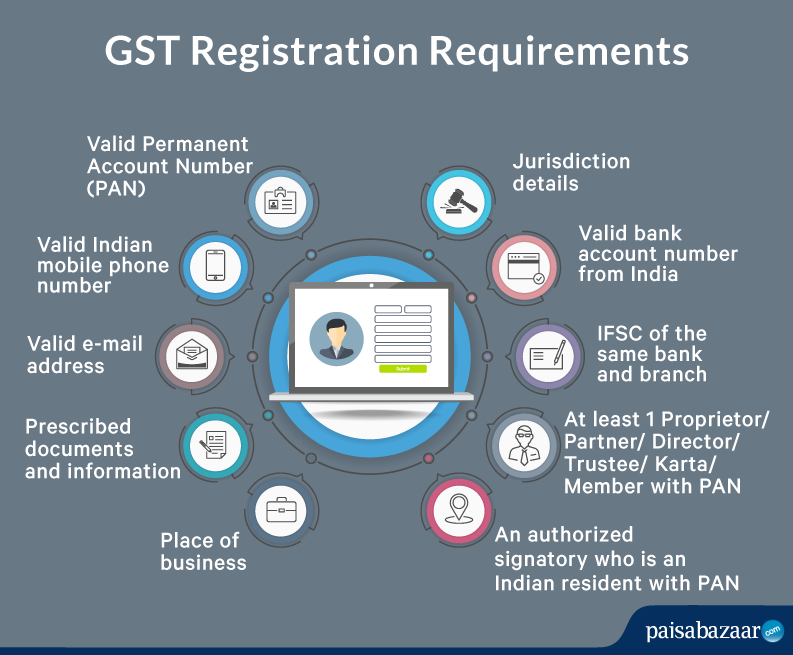Optimize Your Cost Savings with the Best GST Registration Services in Singapore
Optimize Your Cost Savings with the Best GST Registration Services in Singapore
Blog Article
From Beginning to Complete: The Ultimate Roadmap to GST Enrollment for Businesses Seeking Financial Security
Navigating the complexities of Item and Provider Tax Obligation (GST) enrollment is a vital step for organizations striving for economic stability. Damaging down the roadmap right into workable steps can simplify the enrollment trip for organizations looking to boost their financial standing.
Comprehending GST Essentials
Digging into the basic principles of Goods and Services Tax (GST) is crucial for gaining a thorough understanding of its implications on businesses and the economy. Input Tax Obligation Credit Score (ITC) is a significant feature of GST, enabling organizations to claim credit score for tax obligations paid on inputs, reducing the overall tax concern. Understanding the basics of GST is important for organizations to conform with tax obligation guidelines, handle their funds successfully, and add to the nation's financial growth by getting involved in a transparent tax obligation system.
Qualification Requirements for Enrollment
To register for GST, businesses have to meet certain eligibility criteria developed by the government. The main qualification requirement is that any kind of organization associated with the supply of goods or solutions with an annual accumulation turnover over the threshold limit established by the authorities have to sign up for GST. As of the existing regulations, the threshold limit for GST registration is an annual aggregate turnover of 40 lakhs for services running within a state, with the exception of unique classification states where the limit is 20 lakhs. Furthermore, particular services are needed to register for GST regardless of their turnover, such as interstate suppliers, informal taxed persons, and companies accountable to pay tax under the reverse fee system. It is crucial for services to completely analyze their turn over and purchase kinds to determine their GST enrollment commitments properly. Failure to sign up for GST when eligible can result in charges and lawful repercussions, making it essential for businesses to comply with the defined eligibility requirements.
Papers Needed for Registration
Having actually fulfilled the eligibility criteria for GST registration, businesses must now ensure they have the requisite files in location to continue with the registration process successfully. The documents needed for GST enrollment normally include evidence of service constitution, such as collaboration act, registration certification, or consolidation certificate for different kinds of businesses. Additionally, organizations need to supply records establishing the major location of business, such as a rental contract or electrical power bill.
Step-by-Step Enrollment Refine
Beginning the GST enrollment process involves a series of organized actions to guarantee a certified and seamless registration for organizations. The very first action is to visit the GST portal and submit the registration type with exact information of business entity. Following this, the applicant receives a Momentary Referral Number (TRN) which is used to resume the application process if it's not completed in one go.
Following, all needed papers based on the list given by the GST portal requirement to be posted. These documents normally consist of proof of service address, identity and enrollment evidence of promoters, financial statements, and service entity's frying pan card.

Post-Registration Conformity Standards

Conclusion
Finally, businesses looking for financial stability must understand the basics of GST, fulfill qualification requirements, collect necessary documents, adhere to the detailed enrollment procedure, and abide by post-registration standards - Best GST registration services in Singapore. By adhering to these actions, services can guarantee compliance with tax obligation guidelines and preserve economic security over time
Additionally, specific businesses are needed to register for GST regardless of their turn over, such as interstate suppliers, informal taxed individuals, and companies liable to pay tax obligation under the reverse fee mechanism.Having actually met the qualification requirements for look at this website GST registration, organizations should now ensure they have the requisite files in place to proceed with the registration procedure effectively. The documents needed for GST enrollment normally include proof of see here company constitution, such as collaboration action, registration certification, or consolidation certificate for various kinds of organizations. Furthermore, organizations need to supply documents establishing the major area of company, such as a rental contract or electrical energy costs.Commencing the GST registration procedure involves a series of organized steps to make certain a certified and seamless registration for businesses.
Report this page